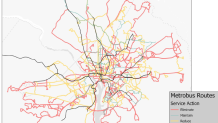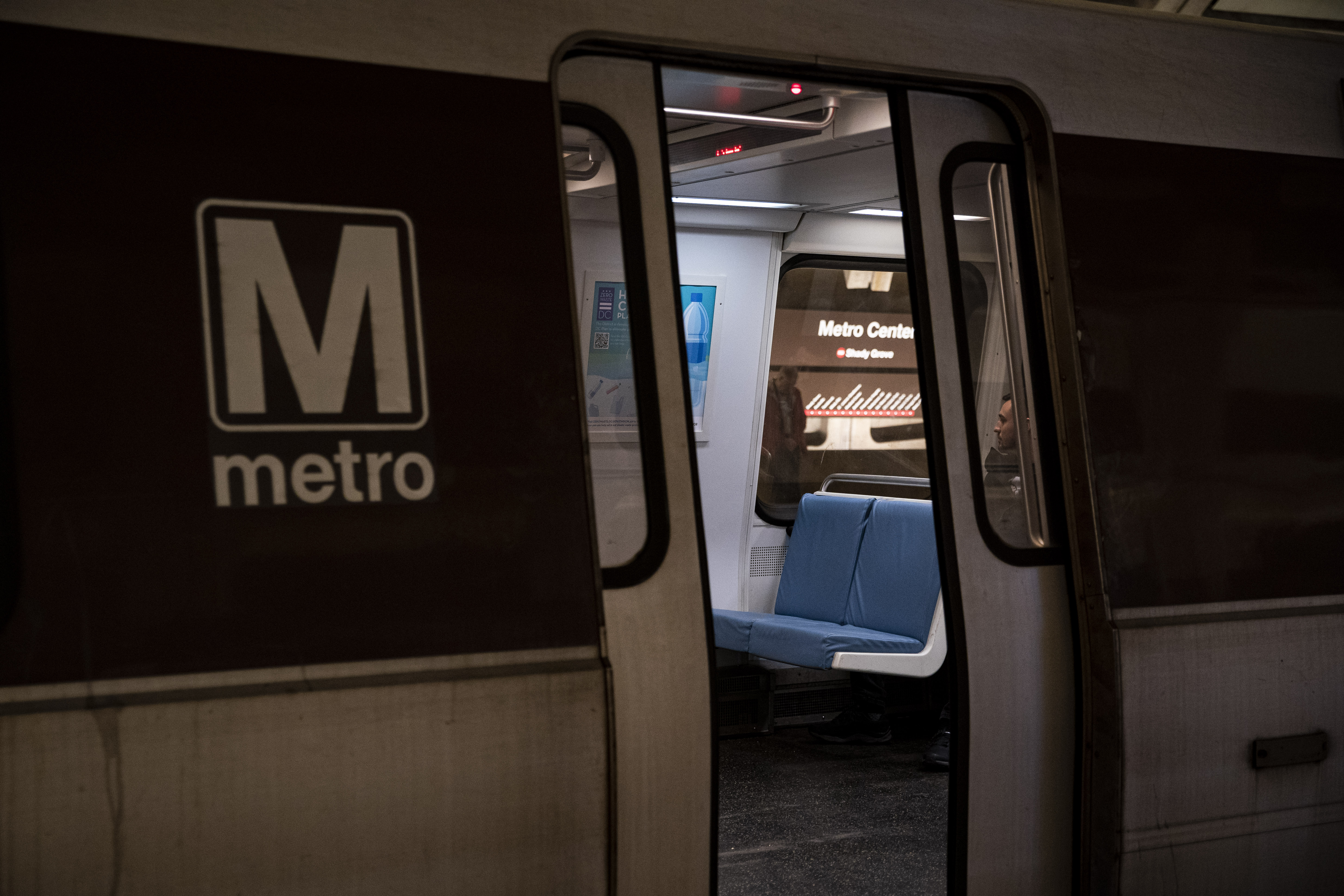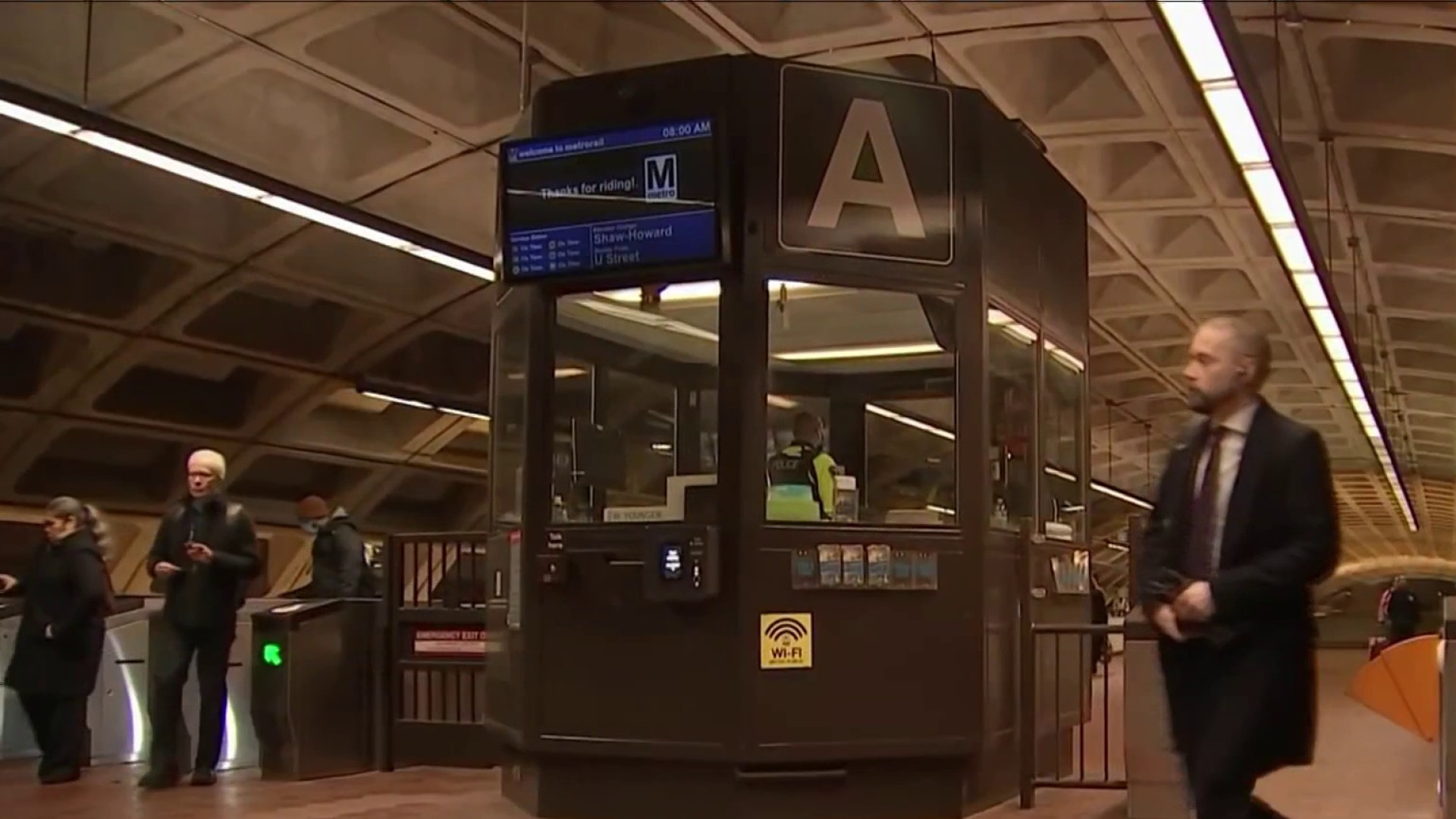Metro General Manager Randy Clarke warned of dramatic service and job cuts if the transit agency doesn’t close a $750 million budget gap in the first half of 2024.
Metro has sounded the alarm for months, saying that if a solution isn’t found, it could change the transit system as we know it, with stations potentially closing early and heavy cuts to how many trains run.
We’ve known about some of the potential implications for months, but Clarke gave more specifics in this week’s media briefing on his proposed "balanced but significantly reduced" budget for next year. It lays out a sort of doomsday scenario, showing what would change if the operating budget isn't increased.
Clarke said service cuts are a last resort and a decision he hopes he doesn’t have to make.
We're making it easier for you to find stories that matter with our new newsletter — The 4Front. Sign up here and get news that is important for you to your inbox.
“Every million is going to count. So, we are managing every day, every single dollar to protect service as much as possible,” he said.
The massive budget shortfall is linked to problems with dedicated funding from D.C., Maryland and Virginia; low ridership and rising costs due to inflation. Metro already cut staffing at five stations this month, citing "unprecedented budget challenges."
"Without a sustainable and predictable funding source to replace federal relief funding, the FY2025 Proposed Budget presents an unrecognizable Metro due to unprecedented service cuts necessary to close the operating deficit," the GM/CEO’s FY2025 Proposed Budget said.
Clarke said he’s an optimist and that he hopes the Washington Metropolitan Area Transit Authority’s constant lobbying of jurisdictional partners will secure additional funding. He said the governors of Maryland and Virginia and state legislators are well aware of the budget issues.
Here’s a look at what could change if Metro doesn’t fill its $750 million budget gap
Metrorail
- All stations would close at 10 p.m. Currently, the earliest Metro normally closes is midnight.
- Ten stations would be shut down completely. WMATA has not decided which stations would close, but the final decision would be based on ridership numbers.
- Metro frequency would be reduced. Right now, the majority of Metro trains arrive every six minutes or less, but without a funding fix come July of next year, the percentage of trains with six-minute service or better would drop to just 10%.
Metrobus
- Metro could eliminate nearly half of its bus lines. Under the proposed budget, 67 of the existing 135 lines would be eliminated. Another 41 lines would see service reductions.
- A third of bus service would be cut across D.C., Maryland and Virginia.

Fare increases
- Metro warned of a 20% increase in fares and parking fees. For example, the max fare on Metrorail right now is $6. Under the proposed budget, a Metrorail fare would be capped at $7.20.
Job cuts
- In January 2024, Metro plans to freeze salary and wage increases.
- In July 2024, 2,286 employees would be laid off.
News4 reached out to D.C.-area lawmakers about their Metro funding plans.
Maryland Gov. Wes Moore’s office said in a statement: “Finding a sustainable, dedicated funding source for Maryland’s transportation modes is a top priority. Our administration is committed to working with WMATA in seeking solutions to these complex funding challenges.”
D.C. Councilmember Charles Allen, who chairs the Committee on Transportation and the Environment, said in a statement that he's been working with District lawmakers and WMATA officials for months on possible solutions. He vowed to push the Council to pass a budget that "fully funds the District’s share for WMATA."
"The clock is ticking, and there needs to be a solution soon – we can’t be the city we need to be with these service cuts, and we can’t run our city’s transit system with this level of uncertainty," Allen said in the statement. "Regional leaders have been in conversations for some time, and I’m confident we all agree that this budget can never become reality."
He described the budget proposed this week as a "worst-case scenario in which DC, Maryland, and Virginia do nothing else" before the WMATA board votes on a budget in April.
What to know about Metro’s budget
The likely solution is that local jurisdictions and states will be asked to contribute more to Metro. Some local leaders, such as Jeff McKay, head of the Fairfax County Board of Supervisors, cautioned Metro that the transit agency must show where and how the money will be spent.
“I can’t emphasize enough the importance of putting together a package that says if you want more money, tell everyone in this community what they are going to get for that in terms of guaranteeing that money is being well spent,” he said.
Metro is basically the only major transit system that does not have a dedicated source of funding such as a sales tax or gas tax set aside for it.
The agency’s budget has two sides: the capital budget and the operating budget. The capital budget covers costs such as trains, buses, stations and tracks. That budget is in good shape. The operating budget covers costs such as pay for bus operators, train operators and other staff. Metro says that’s where the huge budget shortfall lies.
Metro’s funding problems are multipronged. Ridership hasn’t completely rebounded from the effects of the pandemic, and the agency is set to exhaust COVID-related federal relief funding early in the fiscal year 2025, according to Clarke's proposed budget.
“I think one of the biggest reasons why the number is so big is because of the pandemic and the impacts of that. You know, the lack of ridership,” WMATA board Chair Paul Smedberg said this summer.
Also, lawmakers in Maryland and Virginia would have to agree through a legislative process to contribute more to a Metro budget that wouldn't require so many cuts.
Dedicated funding for capital expenses has also become worth less due to inflation, according to the budget documents.
Clarke recently spoke with News4 about the funding issue during a tour of the new Potomac Yard–VT station in Northern Virginia.
“We need to solve once and for all, in my opinion, our operating funding and have a predictable, sustainable source. Because who wants to do these big capital projects that everyone celebrates, and then go, 'Well, are we not going to run that many trains through there?'” he said.
Sign up for our Breaking newsletter to get the most urgent news stories in your inbox.



